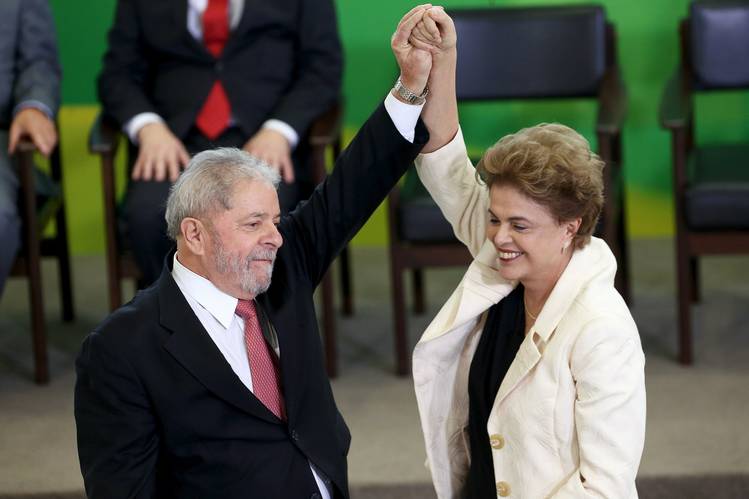Shortly after Brazil President Dilma Rousseff named predecessor Luiz Inácio Lula da Silva as her chief of staff, a judge blocked the move, the latest twist in Brazil’s ongoing massive corruption scandal.
Rousseff appointed Lula — as he is popularly known — to the cabinet position on March 16, one week after prosecutors filed charges against the former president for his alleged role in the multi-billion dollar corruption scheme at state-owned oil company Petrobras. Under Brazilian law, only the Supreme Court can try members of a president’s cabinet, according to the BBC.
Rousseff made the appointment on the same day that a judge ordered the government to release a taped conversation between Lula and Rousseff, which fueled suspicions that Lula was made chief of staff in order to shield him from prosecution.
Shortly after the announcement and the release of the tape, thousands of protesters took to the streets in several cities across Brazil, reported Reuters. By the end of the day, a federal judge attempted to suspend Lula’s appointment only to have the order overturned, only for another judge in Rio de Janeiro to re-issue the injunction. As the Financial Times reports, the government is now appealing that latest development to the Supreme Court.
Rousseff rejected the idea that Lula’s appointment was intended to provide the former president with legal protection.
“Lula’s arrival in my government strengthens it and there are people who don’t want it to be stronger,” she said.
InSight Crime Analysis
The investigations into corruption at Petrobras have reached a critical juncture. Although the multi-year investigation had already ensnared numerous high-level politicians and businessmen, prosecutors have now reached the pinnacle of Brazil’s elite. In addition to the controversy surrounding Rousseff and Lula, billionaire Marcelo Odebrecht was sentenced to 19 years in prison on March 8 for his role in the Petrobras scandal.
SEE ALSO: Coverage of Elites and Organized Crime
If Lula’s appointment as chief of staff ends up going through, this may further damage his credibility rather than help it, given the ongoing massive protests. The same is true for Rousseff: as many as 1.4 million Brazilians already turned out on March 13 to protest corruption and demand the president’s resignation.
Whether or not Rousseff did in fact intentionally shield Lula from prosecution, authorities and the public have already demonstrated that they will not accept the decision quietly.
This story has been updated since it was first published on March 17.

